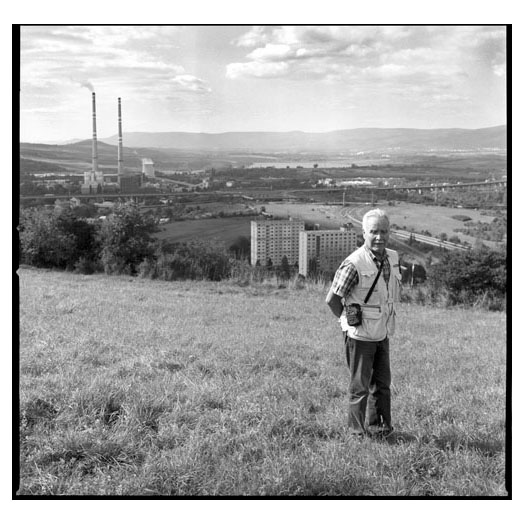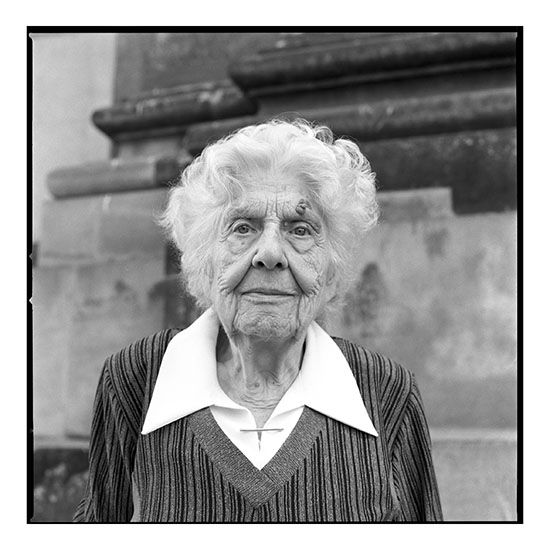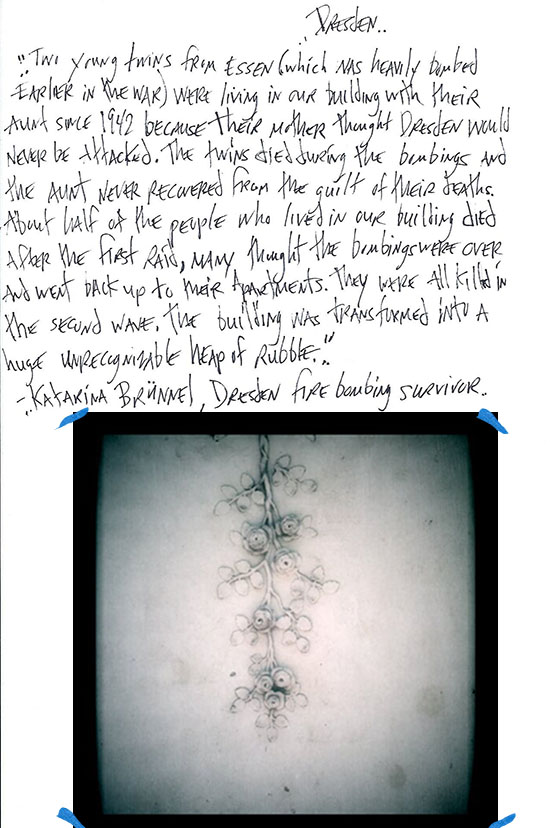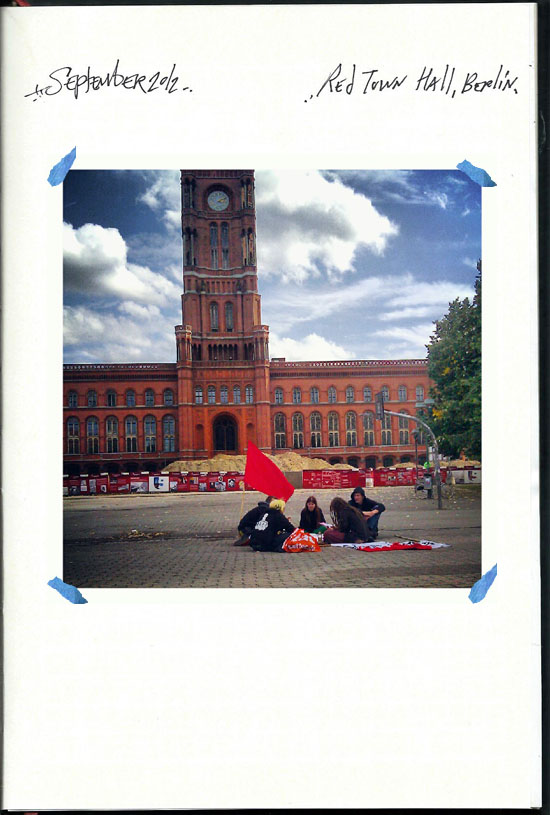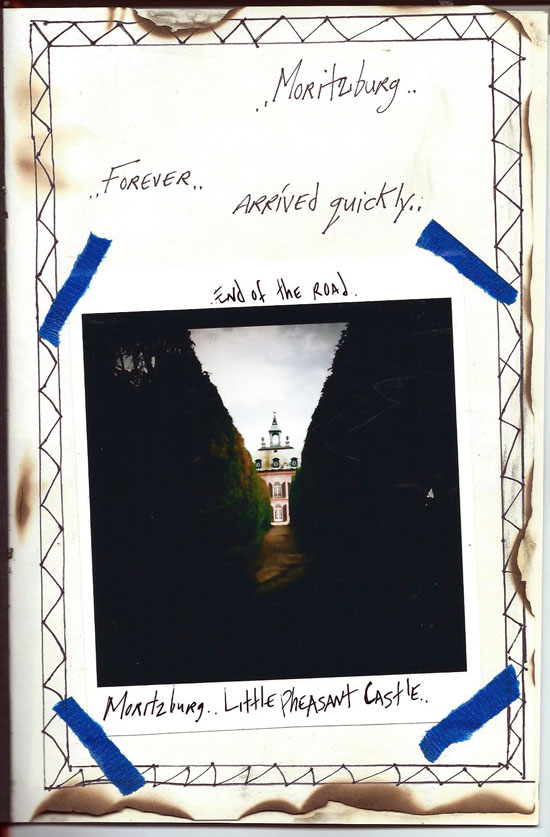..October 2013.. ..Ústí nad Labem..
“Being 11 years old and experiencing the bombings is different from being 11 years old today. We already knew about war because we spoke about it at school and saw it on news reels at the cinema. The war was present everyday.”
Karel Plecháč was from the typical mixed German and Czech family that inhabited the German Sudetenland. His father was German speaking, mother Czech speaking, paternal grandparents were also from a mixed marriage and his maternal grandparents were Czech.
He was 11 years old when Ústí nad Labem was bombed. He survived the raid on April 17th, 1945 near his home in the city center. When the air raid sirens sounded, he and a friend saw the bombers approaching the city.
They rushed to an air raid shelter and endured 25 minutes of terrifying bombing that felt like an eternity. While in the shelter he only thought about his mother and younger sister who were in another part of the city called Trmice.
“The air warden told us to go the shelter. The bombings lasted for 25 minutes but sitting there felt like an eternity. There were mothers and children crying and shouting. When we exited the shelter the whole city was out of order. The corpses of first victims were lying in the town square.”
“In the iron shop window across the street from my house there was a master work by the owner, an iron canon. I always saw this iron canon throughout my childhood. After the bombing one of the first things I noticed was the building was gone. Somewhere below the debris is the iron canon.”
The house his family lived in was heavily damaged. The windows and walls were broken and most of the floors had collapsed. The house next door suffered a direct hit.
Two days later Allied bombers returned to Ústí nad Labem. When the air raid sirens sounded Karel, his mother and younger sister went up to a hill near an area where he played. From on top of the hill they could see the factories exploding in the city below.
“When the air raid sirens sounded I told my mother let’s go to the hill where we played to have a look at the city. We saw all the factories exploding in the city below. I still have goose bumps looking out today and remembering the bombing. The bombs came in a row. This experience became emotionally imprinted in my mind.”
At the conclusion of the war, the German speaking residents of Usti were deported to Germany. Because his father spoke German, the family was ordered to the train station for deportation. At the train station the maternal grandmother, cried out “My children, my children!” A Czech army officer asked her if the family spoke Czech and it was confirmed that they spoke both Czech and German. The officer signed a permit allowing the family to return to their home. Even though the family was spared deportation, the father served 17 months in a labor camp and was forced to clean up the debris in the city.
